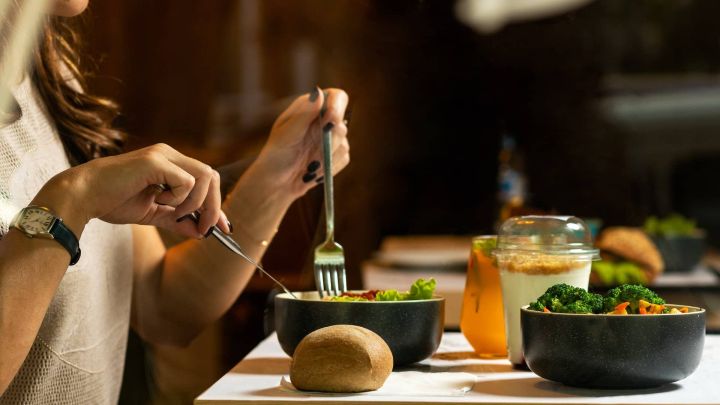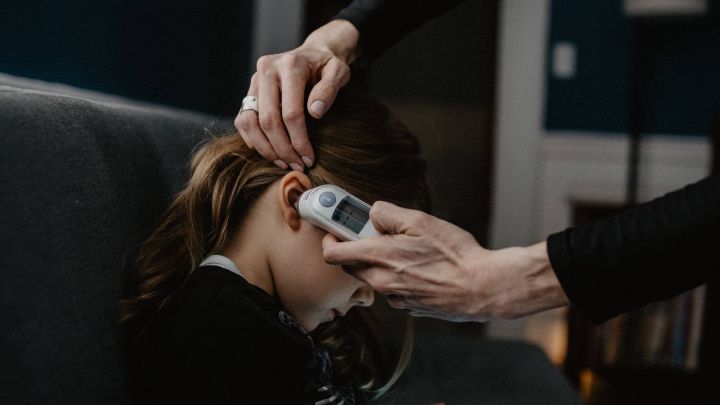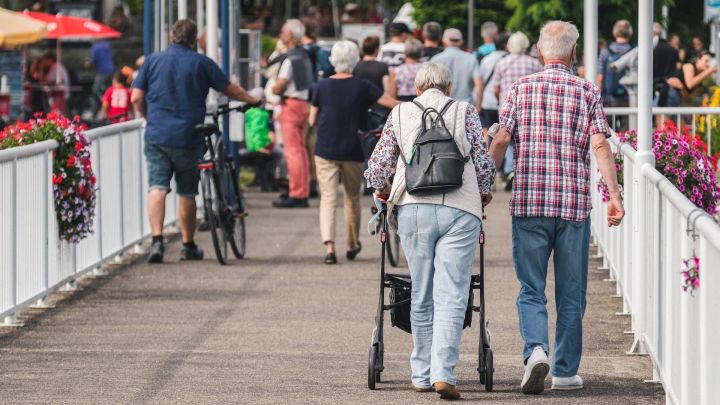Healthy
What Foods Should Older People Not Eat After a Stroke
Once a stroke has occurred, if not detected and treated in time, it can have very serious and dire consequences for the patient. But for elderly people who have had a stroke, in addition to timely treatment, diet is also very important during recovery.

Once a stroke has occurred, it can have very serious and dire consequences for the patient if it is not detected and treated in time. But for elderly people who have had a stroke, in addition to timely treatment, diet is also very important during recovery. Let's take a look at what foods the elderly should not eat after a stroke.

What foods can't the elderly eat after a stroke
1, Can not drink alcohol is actually a very dangerous thing for many diseases, especially for stroke patients more dangerous. It has the potential to trigger a stroke attack and can reduce the effectiveness of medication, so you should never drink alcohol after a stroke.

2, Can not eat high salt content food stroke elderly people should be prohibited to eat high salt food, like kimchi, bacon and so on. This is because these high-salt foods tend to cause high blood pressure, which is one of the main culprits of strokes. Therefore, elderly people who have had a stroke should not eat foods high in salt.
3, Can not eat food containing high fat stroke elderly daily diet should be based on light, eat more high vitamin content, high calcium and low fat and low cholesterol food. Fruits, milk, eggs, etc. The high-fat food is likely to cause the blood to thicken and cause poor blood flow, thus aggravating the stroke situation, so you should not eat high-fat food either.
4, Can not eat spicy food stroke elderly people should avoid eating white wine, pepper, chili, pepper, spicy hot pot, hot and sour fish and other spicy food, otherwise it will easily lead to an increase in blood pressure, affecting the recovery of the disease.
5, Do not eat hot and spicy foods. Nourishing herbs such as angelica, deer antler, ginseng and red ginseng are not suitable for the elderly with stroke.

What to eat after a stroke in the elderly
General dietary treatment:You can eat fish, poultry, lean meat and beans containing small amounts of fat and high protein, less than 30 grams per day. Total energy should not exceed 30% and fat and cholesterol should be less than 300mg/day. Saturated fatty acids, fatty meats, animal fats and animal offal should be eaten sparingly. Overweight fat should be less than 20% of total calories and cholesterol should be less than 200mg.
Carbohydrates are mainly cereals, not less than 55% of total energy, with varied thickness. Limit salt intake to 6 grams or less per day, if used dehydrating agents, or diuretics can be increased appropriately. To ensure adequate vitamins, supply no less than 400 g of fresh vegetables per day. The dietary system should be regular and quantitative, with small and frequent meals, four meals a day, with light and easily digestible dinners.

The diet should have a reasonable structure, low salt, low fat and low cholesterol is appropriate, with an appropriate amount of soya products, vegetables and fruits. Do not smoke and do not drink alcohol. Check your blood sugar and blood lipids regularly.
-
![]()
![]() HealthyAug 11, 2025
HealthyAug 11, 2025How To Manage Cold In The Womb For Women
-
![]()
![]() HealthyAug 10, 2025
HealthyAug 10, 2025What Is The Reason For "Hot On Top And Cold At The Bottom"?
-
![]()
![]() HealthyAug 09, 2025
HealthyAug 09, 2025What Exercises Are Suitable For Elderly People With High Blood Pressure
-
![]()
![]() HealthyAug 08, 2025
HealthyAug 08, 2025Gastrointestinal Diseases Are On The Rise, How To Fight The "Battle For Your Stomach"?
-
![]()
![]() HealthyAug 07, 2025
HealthyAug 07, 2025What Are The Dangers Of Constipation What To Eat For Constipation




